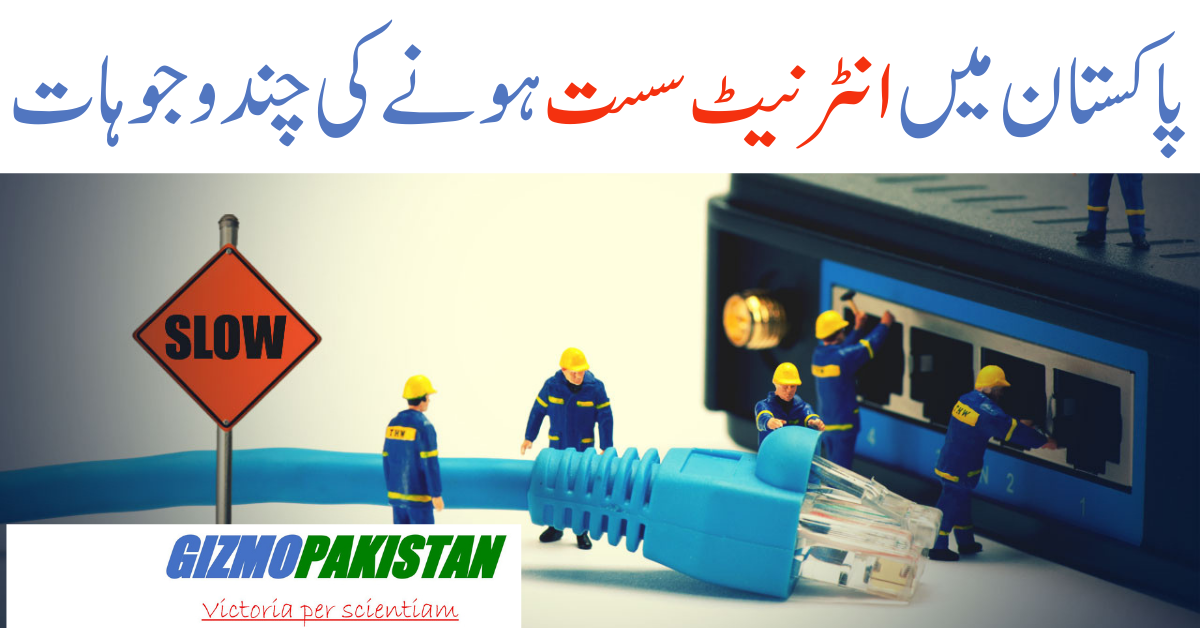Table of Contents
Internet Slowdown Across Pakistan: A Growing Concern
Recent measures taken by the federal government to intensify the monitoring of internet traffic have inadvertently caused a significant reduction in internet speeds nationwide. While the initiative aims to enhance security and surveillance, it has led to a dramatic slowdown in online services, disrupting various sectors of the economy.
Impact on the Digital Economy
The slowdown in internet speeds, which has reportedly dropped by 30 to 40 percent, is wreaking havoc on businesses and individuals who depend on fast and reliable internet connectivity. The hardest hit are call centers, e-commerce professionals, freelancers, and those running technology-driven businesses. These sectors, which are vital to Pakistan’s growing digital economy, are now struggling to maintain their operations and meet their clients’ expectations.
The Struggle of Key Sectors
For many businesses, particularly smaller Internet Service Providers (ISPs), the situation is becoming unsustainable. Shahzad Arshad, Chairman of the Wireless & Internet Service Providers Association of Pakistan (WISPAP), voiced his concerns, stating that many customers are abandoning smaller ISPs due to the deteriorating quality of service. “It’s a very discouraging situation for our customers,” he said, emphasizing the potential for a mass exodus of businesses from Pakistan if the issue persists.
Businesses Consider Relocation
The unstable internet environment is causing businesses to consider relocating to countries with more reliable internet services. A leading e-commerce entrepreneur from Karachi shared their frustrations: “We are seeing businesses planning to shift their operations abroad because the internet is simply no longer reliable. Without fast and secure internet, we cannot compete on a global scale, and this is pushing us towards the brink.”
Challenges with VPN Usage
The increased surveillance has also led to difficulties in using Virtual Private Networks (VPNs), which are crucial for secure communication, especially for international businesses and freelancers. The inability to use VPNs effectively is exacerbating the challenges faced by the digital community, further threatening Pakistan’s position as a hub for digital entrepreneurship.
The Way Forward: Balancing Security and Connectivity
As the business community grapples with these challenges, the government remains focused on its security objectives. However, the critical question arises: How can the country maintain robust security measures without compromising the very infrastructure that supports its digital economy? Finding a balance between security and reliable internet access is essential for the survival and growth of Pakistan’s digital landscape.
Conclusion
Pakistan’s digital economy is at a crossroads. The current slowdown in internet services, driven by increased monitoring efforts, is causing widespread disruption across various sectors. As businesses and consumers struggle to adapt, there is an urgent need for the government to find a solution that addresses security concerns while ensuring the stability and reliability of internet services. The future of the country’s digital economy depends on it.
FAQs
- Why has internet speed decreased in Pakistan recently?
- The slowdown is due to intensified government efforts to monitor internet traffic for enhanced security and surveillance.
- Which sectors are most affected by the internet slowdown?
- Call centers, e-commerce businesses, freelancers, and technology-driven enterprises are the most affected.
- How much has internet speed dropped in Pakistan?
- Internet speeds have reportedly decreased by 30 to 40 percent.
- What is the impact of this slowdown on small ISPs?
- Many customers are leaving smaller ISPs due to poor service quality, which could lead to significant business losses.
- Are businesses considering relocating due to the internet issues?
- Yes, some businesses are considering relocating to countries with more stable internet services.
- How has the slowdown affected VPN usage?
- Increased surveillance has made it difficult for users to access VPNs, impacting secure and uninterrupted internet access.
- What is the response from the business community?
- The business community is increasingly concerned, with some warning of potential damage to Pakistan’s digital economy and global competitiveness.
- Is the government taking any steps to address the internet slowdown?
- While the government remains committed to security, there has been no clear indication of measures to restore internet speeds.
- What are the long-term risks if the situation doesn’t improve?
- Continued internet instability could lead to a mass exodus of businesses, damaging Pakistan’s reputation as a digital hub.
- How is the digital economy being affected by the slowdown?
- The digital economy, which includes e-commerce, freelancing, and tech businesses, is facing severe operational challenges due to the reduced internet speeds.
- What is the impact on Pakistan’s international business relations?
- The slowdown is making it difficult for international businesses and freelancers to operate, potentially harming Pakistan’s global business relations.
- Can businesses still compete on a global scale with these internet issues?
- Competing globally is becoming increasingly challenging due to unreliable internet services, which are crucial for digital operations.
- Is there any relief expected for the affected sectors?
- As of now, there has been no official statement indicating relief or improvements in internet services for the affected sectors.
- How are consumers being affected by the internet slowdown?
- Consumers are experiencing slower browsing speeds, disrupted online services, and difficulties in accessing secure connections.
- What steps can businesses take to mitigate the impact of the slowdown?
- Businesses may consider using multiple ISPs, optimizing their internet usage, and exploring alternative connectivity solutions to mitigate the impact.


Leave a Comment